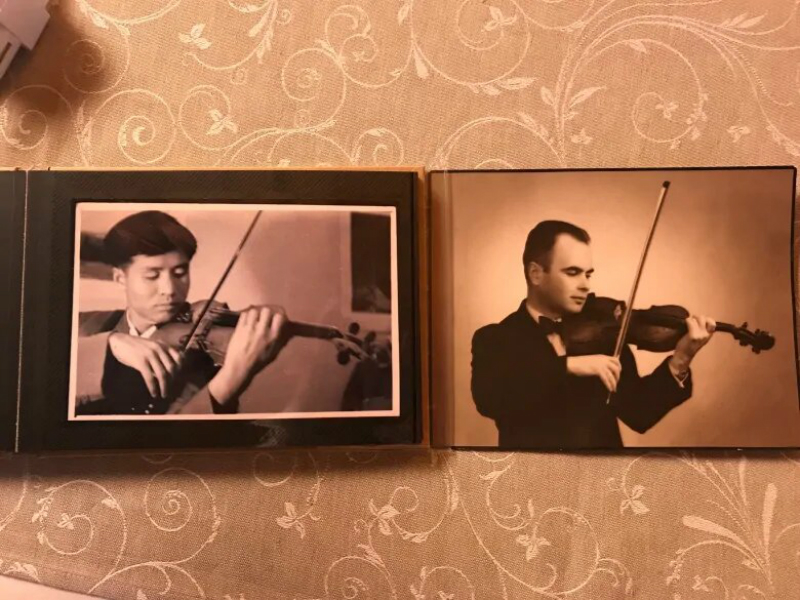“Without Mr. Adler, there’s no chance my father, or my brother, would have become professional musicians,” said Fang Sheng.
Although he is not a musician, Sheng comes from a family of trained classical musicians. The importance of music in Sheng’s family history is undeniable, and according to him, there is one man who deserves credit for it.
Fang Sheng is the son of Ming Llang Sheng, who is one of the many Chinese orphans who received a musical education from Jewish Holocaust refugees. Sheng came to the Bathurst Clark Resource Library in Thornhill, Ont., on Sept. 22, to give a talk called Finding Adler.
In his speech, Sheng discussed some of the mystery surrounding Ferdinand Adler, as well as his resounding influence on China’s musical history. Indeed, many of Adler’s students went on to perform professionally and in the national orchestra, laying the foundation for classical music in China.
Sheng had always been curious about the man who taught his father, and many other orphans, to play the violin, so he started what he calls the Adler Project. “At first, I couldn’t even find Adler’s first name, it was only after a long and deep research did I find out that his first name was Ferdinand,” Fang told the audience.
READ: WHY IS CHINA SO INTERESTED IN ISRAEL AND THE JEWS?
Ming Llang Sheng and his brother were orphaned following the Japanese invasion of China in the 1930s, and were put into an orphanage in Changzhou. During the 1940s, a Chinese government official named Ho Feng Shan risked his life by issuing visas to thousands of Jewish refugees.
One of them was Adler, who arrived in Shanghai with a suitcase and a violin. He, along with a handful of other Jewish musicians, immigrated to Shanghai and then accepted jobs teaching the orphans in Changzhou.
“Adler and the other Jewish musicians performed concerts for the children. It was the first time any of them had seen that before. It inspired them,” said Sheng.
Despite the initial language barriers, the power of the music transcended any limitations and formed enduring bonds between Adler and his students. While his students flourished under his instruction, Adler unexpectedly fled the country due to the civil unrest and tense political climate. He was never seen or heard from again by any of his students, but his memory and his legacy still burned strongly.
In 2017, all Sheng had was a black-and- white photo of Adler with his students and an endless number of burning questions. As though it were some kind of miracle, months after following a cold trail, Sheng came across a headline that caught his attention. It was regarding a woman who approached the Shanghai Symphony Orchestra to tell them about her father. The woman’s name was Christina Adler, and her father’s name was Ferdinand Adler.
Sheng managed to track Christina Adler down and she agreed to meet with him at her home in Austria. Suddenly, the darkness surrounding the mysterious man came to light, as Christina Adler shared her father’s life story, along with several decades worth of photos, concert clippings and letters.
The meeting gave both Sheng and Christina Adler insights into each of their own family histories. Christina Adler was unaware that her father had once taught at the orphanage; and Sheng was grateful to finally uncover the story behind the man who had made such an impact on his family.
“Many Jews express gratitude for Shanghai as a place for refuge, but they don’t realize the contribution they made back to Shanghai, and China as a nation,” he said.
